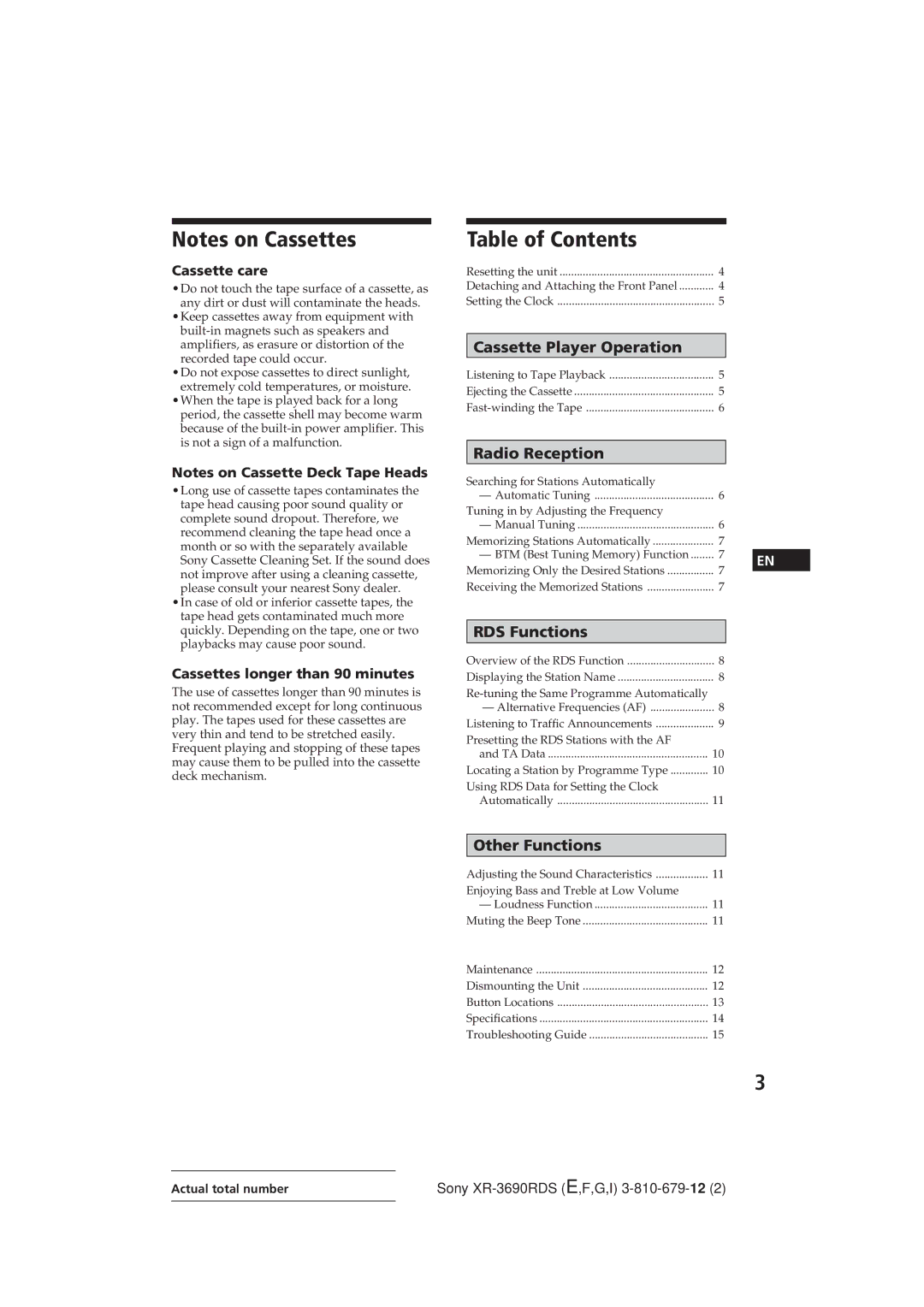
Notes on Cassettes
Cassette care
•Do not touch the tape surface of a cassette, as any dirt or dust will contaminate the heads.
•Keep cassettes away from equipment with
•Do not expose cassettes to direct sunlight, extremely cold temperatures, or moisture.
•When the tape is played back for a long period, the cassette shell may become warm because of the
Notes on Cassette Deck Tape Heads
•Long use of cassette tapes contaminates the tape head causing poor sound quality or complete sound dropout. Therefore, we recommend cleaning the tape head once a month or so with the separately available Sony Cassette Cleaning Set. If the sound does not improve after using a cleaning cassette, please consult your nearest Sony dealer.
•In case of old or inferior cassette tapes, the tape head gets contaminated much more quickly. Depending on the tape, one or two playbacks may cause poor sound.
Cassettes longer than 90 minutes
The use of cassettes longer than 90 minutes is not recommended except for long continuous play. The tapes used for these cassettes are very thin and tend to be stretched easily. Frequent playing and stopping of these tapes may cause them to be pulled into the cassette deck mechanism.
Table of Contents
Resetting the unit | 4 |
Detaching and Attaching the Front Panel | 4 |
Setting the Clock | 5 |
Cassette Player Operation
Listening to Tape Playback | 5 |
Ejecting the Cassette | 5 |
6 |
Radio Reception
Searching for Stations Automatically |
|
| |
— Automatic Tuning | 6 |
| |
Tuning in by Adjusting the Frequency |
|
| |
— Manual Tuning | 6 |
| |
Memorizing Stations Automatically | 7 |
| |
........— BTM (Best Tuning Memory) Function | 7 | EN | |
Memorizing Only the Desired Stations | 7 | ||
| |||
Receiving the Memorized Stations | 7 |
|
RDS Functions
Overview of the RDS Function | 8 |
Displaying the Station Name | 8 |
| |
— Alternative Frequencies (AF) | 8 |
Listening to Traffic Announcements | 9 |
Presetting the RDS Stations with the AF |
|
and TA Data | 10 |
Locating a Station by Programme Type | 10 |
Using RDS Data for Setting the Clock |
|
Automatically | 11 |
Other Functions
Adjusting the Sound Characteristics | 11 |
Enjoying Bass and Treble at Low Volume |
|
— Loudness Function | 11 |
Muting the Beep Tone | 11 |
Maintenance | 12 |
Dismounting the Unit | 12 |
Button Locations | 13 |
Specifications | 14 |
Troubleshooting Guide | 15 |
3
Actual total number | Sony |
